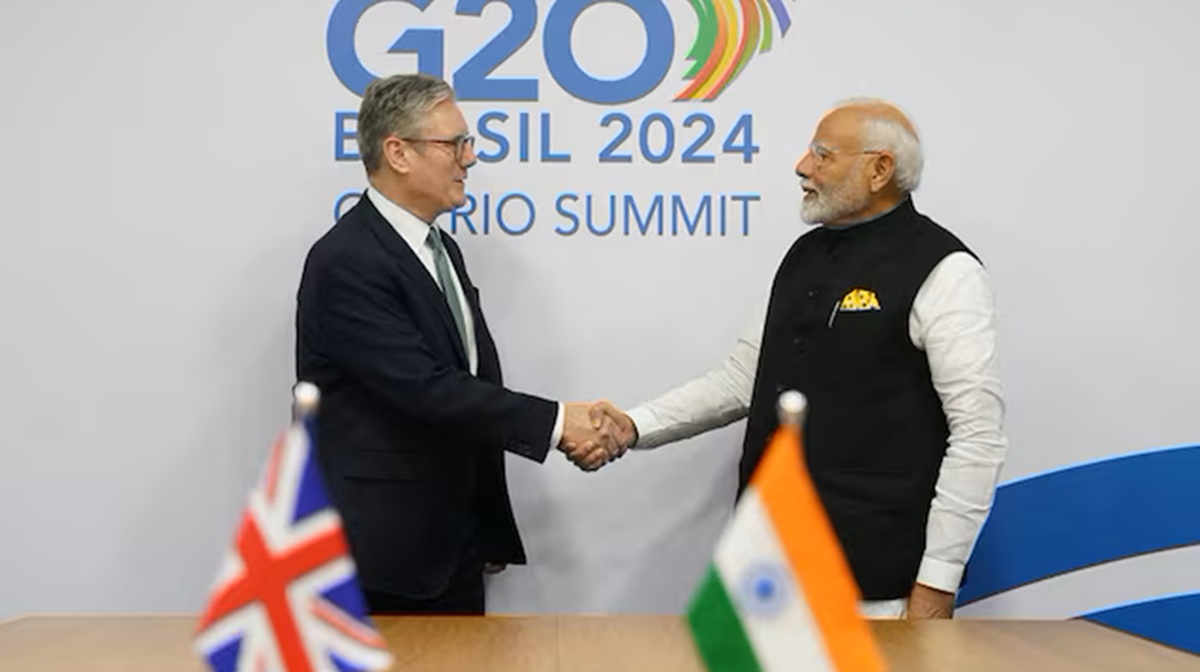India and the United Kingdom have successfully concluded a monumental free trade agreement (FTA) after 14 extensive negotiation rounds spanning three years. This landmark deal is projected to elevate bilateral trade to an impressive $120 billion by 2030, marking a significant milestone in India’s engagement with the UK following Brexit. Both nations stand to gain economically, with Prime Minister Narendra Modi highlighting the potential of this agreement to spur trade, investment, growth, and job opportunities.
Key Sectors Set to Flourish Under the India-UK FTA
The FTA is poised to benefit numerous sectors, including:
- Textiles
- Automotive Parts
- Information Technology Services
- Pharmaceuticals
- Gems and Jewelry
- Leather
- Engineering Goods
According to the Ministry of Commerce and Industry, the agreement guarantees comprehensive market access across all sectors, ensuring that 99% of tariff lines will see reductions. This eliminates tariffs on nearly all trade value, paving the way for increased economic collaboration between India and the UK.
Automotive Sector Gains
One of the most impactful changes will be in the automotive sector, where Indian tariffs on vehicle imports will plummet from over 100% to just 10%. Additionally, both countries will introduce quotas for automobile imports, making luxury UK cars more accessible to Indian buyers. Major industry players such as Tata Motors, Eicher Motors, and TVS Motors are expected to leverage this opportunity effectively.
IT Sector Expansion
The FTA will also simplify market entry for Indian IT firms and professionals, potentially benefiting over 60,000 professionals annually. Companies like TCS, Infosys, and Wipro are well-positioned to take advantage of enhanced mobility and market access, leading to significant growth in the IT sector.
Pharmaceutical Industry Boost
Indian pharmaceutical companies are set to thrive as the FTA aims to streamline regulatory approvals for generic medications. Industry giants such as Dr. Reddy’s Laboratories and Cipla are anticipated to see substantial gains in exports due to this favorable regulatory environment.
Engineering and Industrial Goods Opportunities
The new trade framework is expected to ramp up demand for Indian engineering and industrial goods within the UK’s infrastructure and manufacturing sectors. Companies like Cummins India and L&T are poised to benefit from this surge in demand.
Alcoholic Beverages Sector
The agreement has also seen a reduction in import duties on Scotch and British gin, slashing them to 75% while making domestic blended whisky cheaper. Praveen Someshwar, CEO of Diageo India, praised the agreement, emphasizing its potential to enhance consumer choice in the thriving Indian whisky market. Key companies to watch include United Spirits and Radico Kaitan.
Textile Industry Advantages
With the elimination of tariffs on Indian textiles, firms such as Vardhaman Textiles and Raymond are expected to enhance their competitiveness in the UK market significantly. This change is likely to boost exports and market presence for these companies.
Agricultural and Food Sector Gains
Tariff reductions on Indian tea, spices, and ready-to-eat products will improve market access for local manufacturers. Companies like Tata Consumer Products and Nestle India are set to capitalize on these concessions.
Gems and Jewelry Export Potential
The FTA is projected to double India’s gems and jewelry exports to the UK, potentially reaching $2.5 billion within two years. This agreement could increase total bilateral trade in this sector to $7 billion, benefiting firms like Titan Company and Kalyan Jewellers.
Strengthening Trade Relations Between India and the UK
The Ministry of Commerce and Industry emphasized that this comprehensive FTA represents a culmination of rigorous negotiations aimed at enhancing trade and investment across various sectors. It is designed to foster sustainable economic growth, ensure resilient supply chains, and create high-quality employment opportunities in India.
In conclusion, the India-UK FTA is set to provide Indian exports with tariff-free access to one of the world’s most lucrative markets, particularly benefiting labor- and technology-intensive sectors. This historic agreement is a significant leap forward in strengthening trade ties between the two nations.











